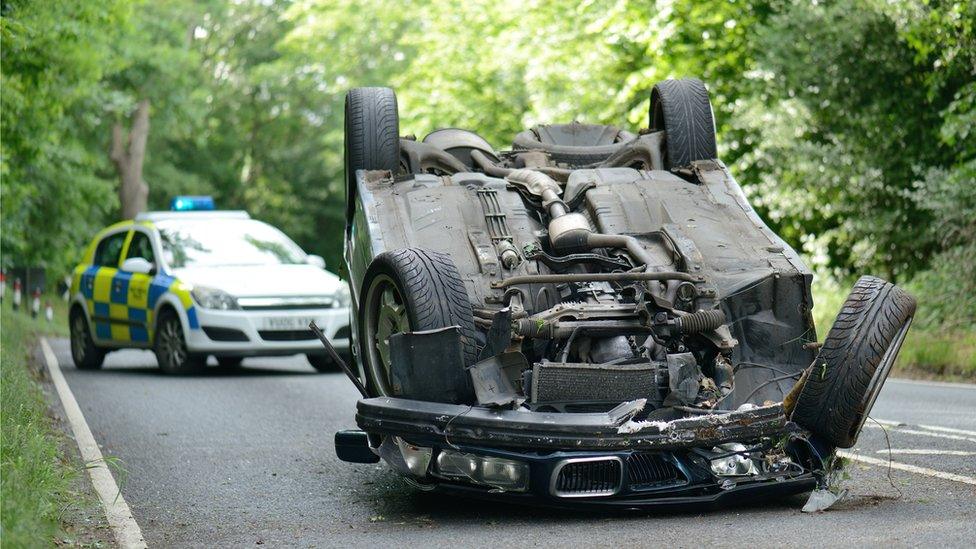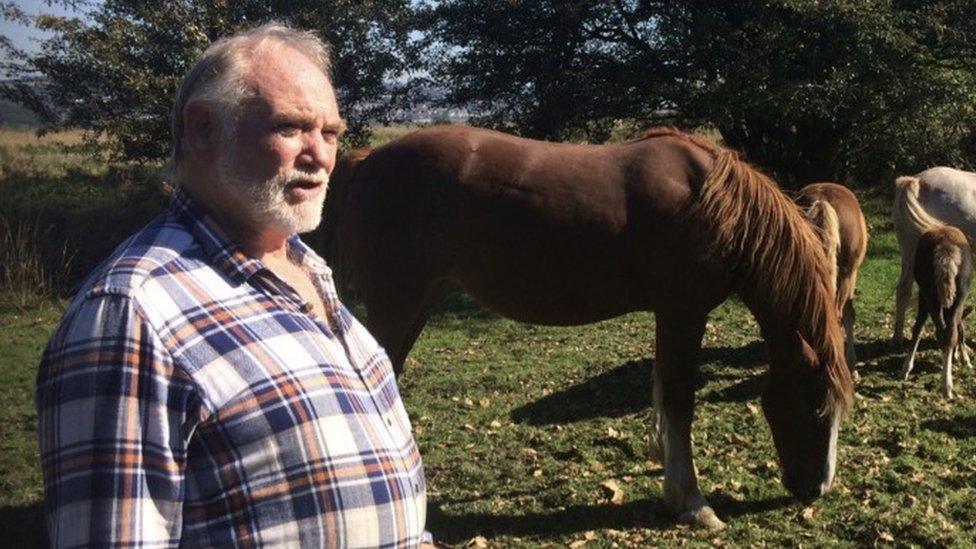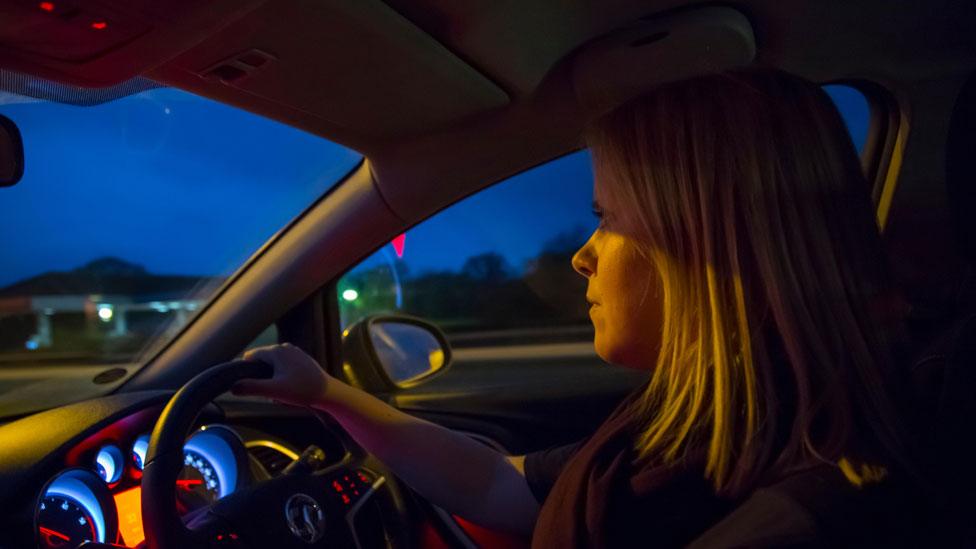Can Swansea University psychologists help to lock up dangerous drivers?
- Published

Witnesses' memories of crashes are "vulnerable to distortion", psychologist Ruth Horry says
Welsh police hope psychology can help them to convict dangerous drivers.
South Wales Police is trialling the use of a questionnaire to obtain detailed accounts from witnesses to car crashes.
The "self-administered interview" has been developed by academics led by Ruth Horry at Swansea University who said it can increase accuracy by 50%.
Fewer than 60% of dangerous driving prosecutions led to convictions in Wales between 2008 and 2018, research by the BBC has found.
Of the 5,911 prosecutions for these types of offences, including causing death or injury by dangerous or careless driving, 3,454 led to convictions, Ministry of Justice figures show.
Current practice in the UK is for officers to take brief verbal accounts and contact details from witnesses and send them a form to complete and return.
Not only is this a problem for stretched officers at the scene but it can also lead to "information loss" which can put prosecutions at risk, explained Dr Horry, an expert in memory retrieval.
Now a team of academics she leads have developed a 20-page questionnaire designed to gather the most important detail accurately.
Dr Horry said similar questionnaires have already been tested in the laboratory in different studies involving more than 1,000 participants, and were on average 49% more accurate.

Ruth Horry believes the trial is the first of its kind in the world
"What we learned from the lab is that with any type of event, the quicker you can get information from people the more detailed that information will be," Dr Horry said.
"Our memories are very vulnerable to distortion. If you can get to people quickly and get them to write down what they saw, they can distinguish between what they saw and what they heard."
Last year, police recorded 4,215 crashes on Welsh roads resulting in 5,759 casualties, according to Road Safety Wales.
Of these, 103 people were killed, 1,028 were seriously injured and 4,628 were slightly injured.
In a trial believed to be the first of its kind in the world, South Wales Police's road policing unit has been using the questionnaire when a person has been injured in a crash.

What does the questionnaire ask?
Among other things, it asks:
Write down everything that you can remember about the sequence of events
Please include information about the driver's behaviour, the driving conditions, and the consequence of the collision
Please use the space below, and/or on the next page, to sketch the scene of the accident as you remember it
Provide a description of the driver (if possible, include gender, approximate age, height, build, complexion, colour of hair and eyes, and any other distinctive features or clothing)

The 12-month trial started in June and if successful, the questionnaire would be made freely available to other police forces in the UK and around the world.
Dr Horry added: "Our aim is to make the roads safer for everyone. We know that better information from witnesses means a higher chance of successful prosecutions of dangerous drivers.
"Laboratory studies have already shown that the self-administered interview improves the accuracy of information that witnesses remember.
"But we need to be sure that it also works in real-life conditions, which is why this research trial, working with South Wales Police, is so important."
- Published8 October 2018

- Published3 February 2019

- Published27 March 2019

- Published18 July 2019
